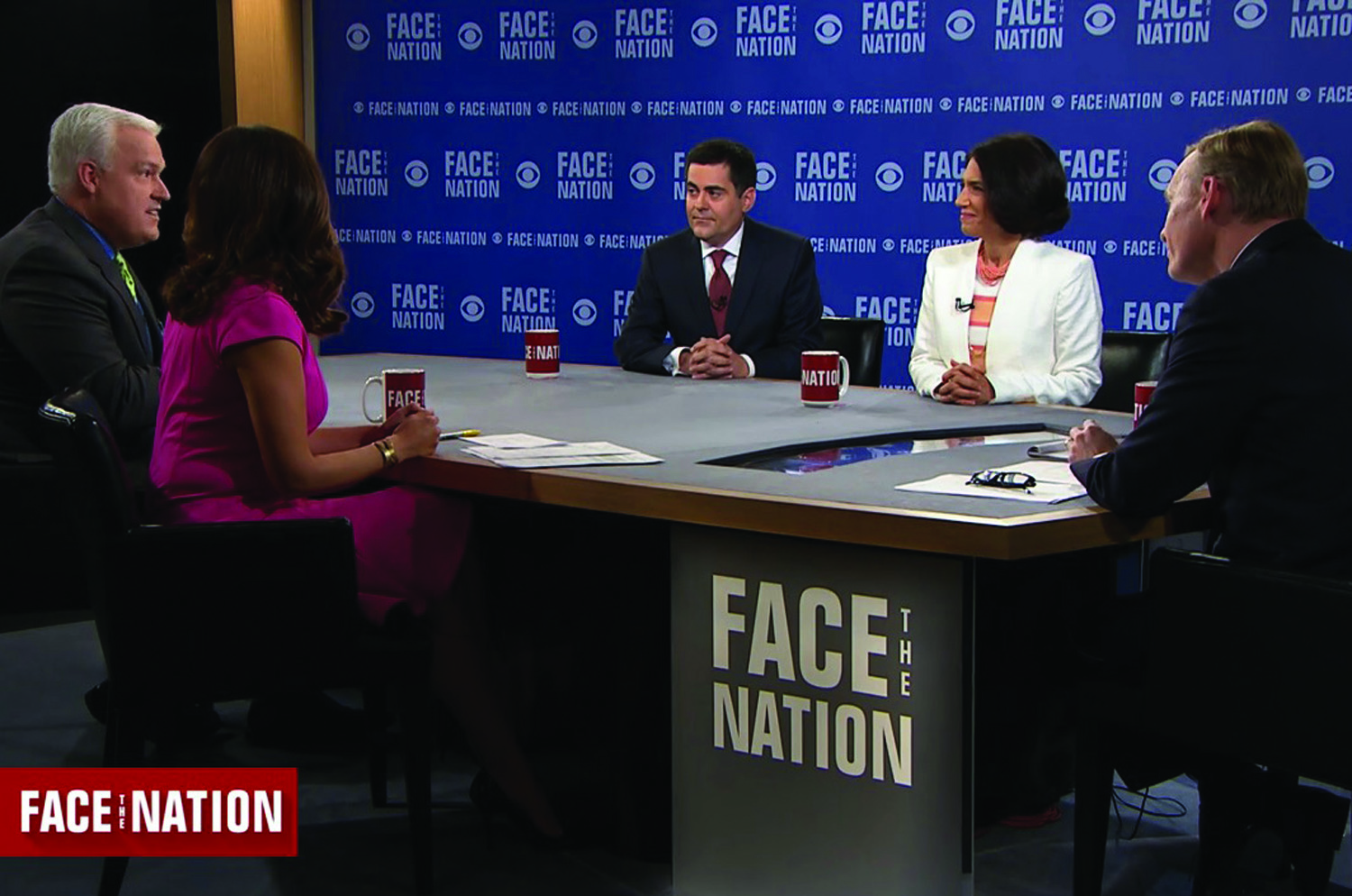By Art Toalston, Baptist Press
WASHINGTON (BP) — Russell Moore spoke and Donald Trump took notice in one of his Twitter posts today (May 9).
Trump’s tweet came the morning after Moore, president of the Southern Baptist Ethics & Religious Liberty Commission, criticized the presumptive Republican nominee on CBS’ “Face the Nation” and, two days earlier, in a New York Times online op-ed.
“@drmoore Russell Moore is truly a terrible representative of Evangelicals and all of the good they stand for. A nasty guy with no heart!” Trump tweeted at 5:05 a.m. May 9.
Trump’s tweet quickly stirred diverse reactions among outspoken Southern Baptists, from pro-Trump pastor Robert Jeffress of First Baptist Church in Dallas to several Baptist leaders who affirmed Moore’s comments.
Moore was one of several “key conservatives,” as described by Face the Nation host John Dickerson, interviewed on the Sunday morning talk show.
Moore said character matters as much now as it did during “the previous Clinton era,” an era when, as Moore has said on previous occasions, conservatives were outraged over former President Bill Clinton’s sexual behavior in the White House.
Some conservatives “now are not willing to say anything when we have this sort of reality television moral sewage coming through all over our culture,” Moore said.
These conservatives, not specified by Moore in his Face the Nation comments, formerly complained “we have too much awful cultural rot on television,” but now they want “to put it on C-SPAN for the next four years and to give a model to our children,” whether by Trump or Democratic frontrunner Hillary Clinton, “of an amoral sort of vision of America.”
Trump and Clinton, Moore said, reflect “an embrace of the very kind of moral and cultural decadence that conservatives have been saying for a long time is the problem.”
A segment of “under-50 evangelicals,” not quantified by Moore, are “saying, we cannot in good conscience support either of these two candidates because what we end up with at the end of the day is one sexual revolutionary party that is hostile to everything that we believe in.”
Some conservative evangelicals, Moore acknowledged, will vote for Trump because they believe “the Supreme Court is on the line.”
Yet “there are going to be many other evangelicals who simply don’t vote … or who do find a third-party candidate or a write-in candidate to vote for, not because they think that candidate will win, but because they think there’s something more important than politics, which is one’s conscience.”

Presumptive Republican presidential nominee Donald Trump tweeted his displeasure at Russell Moore’s insistence that for his insistence that evangelicals pull back from supporting Trump’s campaign.
Jeffress, in an email to Baptist Press, said, “If you keep poking the bear, you shouldn’t be surprised when the bear takes a bite out of you.”
Jeffress told TIME magazine, “This is unprecedented what Russell Moore has done, and I believe there are many people who are not sympathetic with his views toward Trump.” Jeffress added, “While Moore is a respected leader in the Southern Baptist Convention, he absolutely does not speak for all Southern Baptists even as I don’t speak for all Southern Baptists. There are no Southern Baptist popes.”
Among Moore’s supporters, Trump’s reaction is “a badge of honor,” tweeted culture commentator Denny Burk, professor of biblical studies at Boyce College, the undergraduate school of Southern Baptist Theological Seminary.
J.D. Greear, pastor of The Summit Church in Raleigh-Durham, N.C., and one of three candidates for Southern Baptist Convention president in June, tweeted that he is grateful for Moore’s leadership, “particularly his posture of grace and truth. Lead on, brother!”
“Keep pressing toward the mark,” Thabiti Anyabwile, a frequent speaker at Baptist conferences and a pastor in the metro Washington area, tweeted to Moore. In a second tweet, Anyabwile said, “You won’t meet a man w/ a sharper mind, warmer heart and consistent passion for what’s right than Russ @drmoore.”
Also tweeting affirmations of Moore were Kevin Ezell, president of the North American Mission Board; Daniel Akin, president of Southeastern Baptist Theological Seminary; and Greg Thornbury, president of The King’s College in New York City.
Baptist Press sought amplification from the Trump campaign about the May 9 tweet targeting Moore but had not received a reply by BP’s posting several hours later.
Moore, in his New York Times op-ed three days after Trump became the presumptive Republican nominee with another lopsided primary victory, in Indiana, had written, “Regardless of the outcome in November, his campaign is forcing American Christians to grapple with some scary realities that will have implications for years to come.”
Referencing the spread of Christianity in Africa, Asia and Latin America and ethnically diverse churches in America, Moore claimed, “This election has cast light on the darkness of pent-up nativism and bigotry all over the country. There are not-so-coded messages denouncing African-Americans and immigrants; concern about racial justice and national unity is ridiculed as ‘political correctness.’ Religious minorities are scapegoated for the sins of others, with basic religious freedoms for them called into question.”
Moore noted, “The question is whether evangelicals will be on the right side of Jesus. That will mean standing up for the church’s future leaders, and for our mission, especially when they are politically powerless…. A vast majority of Christians, on earth and in heaven, are not white and have never spoken English…. The man on the throne in heaven is a dark-skinned, Aramaic-speaking ‘foreigner’ who is probably not all that impressed by chants of ‘Make America great again.'”




